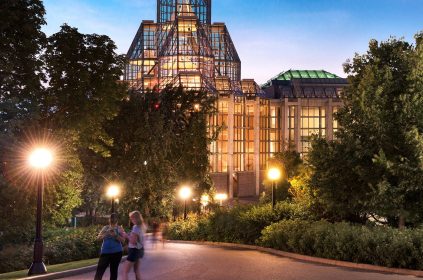A Manitoba Hutterite minister is telling the province to stop identifying colonies where members have tested positive for COVID-19 because it is leading to stigmatization.
Paul Waldner from the CanAm Hutterite Colony in southwest Manitoba sent a letter to Premier Brian Pallister and Health Minister Cameron Friesen Wednesday saying that if the practice was not stopped, he would file a human rights complaint. The correspondence was also sent to media outlets.
“Should the announcements continue, we expect the stigmatization and associated cultural and religious profiling, will only worsen,” Waldner wrote.
Manitoba Chief Public Health Officer Brent Roussin said the government has a right to identify clusters and it has not specifically named communities.
There have been reports of discrimination against Hutterites after outbreaks in multiple colonies in Alberta, Saskatchewan and Manitoba.
The Hutterian Safety Council COVID-19 Task Force, a volunteer group of spiritual leaders, first responders and educators, said Thursday in a news release that there are more than 120 Hutterite communities in Manitoba and only five communities currently have active cases. There were 35 cases in Manitoba linked to Hutterite colonies as of Wednesday.
There were 43 new cases announced in Saskatchewan on Wednesday in a single colony. There are 17 Hutterite communities in that province with active cases.
Many are believed to be linked to a funeral in southern Alberta recently for three teens who drowned last month. The cases in Manitoba have not been linked to the funeral, but are connected to travel between the provinces.
The Hutterite way of life may make colonies vulnerable to the spread of COVID-19, but it also makes them adaptable to stopping it, said John Lehr, a senior scholar at the University of Winnipeg.
Hutterites are fully communal, Anabaptist communities that originated in the 16th century. There are about 50,000 members in more than 520 colonies in Canada and the United States.
Lehr, who co-authored a book on Hutterites and researched the communities for decades, said “they are just ordinary people who happen to live and dress a little differently than the rest of us.” The colony is seen as an arc of “Christian righteousness which is adrift in a secular sea of potential sin.”
“For that reason, they tend to keep to themselves,” Lehr said.
Hutterites are community minded, he added.
At the beginning of the pandemic many Hutterite colonies sewed masks and distributed them for free, supplied food, and provided other supports as needed.
Leaders were also aware that if COVID-19 made its way into the colonies they would be at a higher risk for rapid spread. Lehr said Hutterites generally have larger families and there can be as many as 10 people living in one house. There are also communal meals and church services.
Some colonies took major precautions, even locking themselves down.
Hutterite writer Elaine Hofer wrote in Broadview magazine in May about how COVID-19 had impacted her Manitoba colony by resetting their lives. Before the pandemic everyone ate meals and worshiped together every day, but now those halls are empty, she wrote. She added that it’s also reconnected many to their faith in a more profound way.
As in the rest of society, Hutterites are not all the same. Some people followed public health suggestions closely, others took less precautions.
When provinces began to loosen restrictions, so did a lot of colonies.
Many colonies and members have adopted social media. There is a lot of talk on their pages about the pandemic, faith and a responsibility to ensure the safety of their community members as well as the larger society. People write about how they are uncomfortable with the spotlight being directed on their quiet, private communities.
There are also stories lately of how some people are being turned away from local stores and businesses because they are Hutterites.
“There should be no discrimination against Hutterites,” said Dr. Saqib Shahab, Saskatchewan’s chief public health officer, on Wednesday in a sentiment echoed by provincial health leaders across the prairies.
The Hutterian Safety Council has encouraged everyone to co-operate with public health orders and share information with officials who are tracing infections. It also told people not to fight back against cultural profiling.
The council said close-knit Hutterite communities possess many strengths but, as a deeply traditional society, they can resist change, “especially if it is perceived as increasing separation and isolation within the community.”
“The COVID-19 pandemic brings this tension sharply into focus and the rise in cases and spread in our communities, at least in part, is a reflection of this dynamic in action.”
This report by The Canadian Press was first published July 23, 2020
Kelly Geraldine Malone, The Canadian Press















